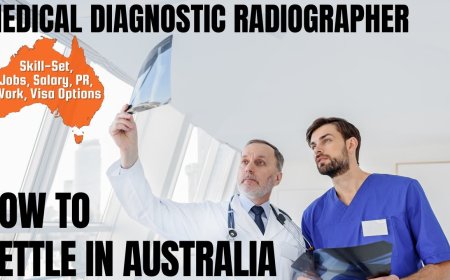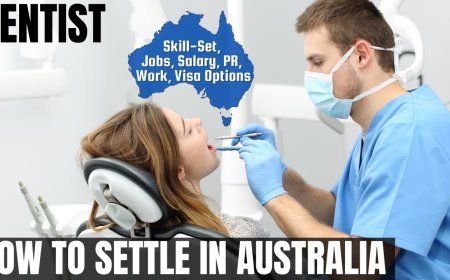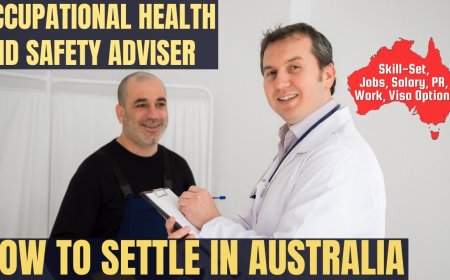Audiologist Career and Immigration options for Australia
Audiologist Provides diagnostic assessment and rehabilitative services related to human hearing defects. Registration or licensing is required
Profile Title: Audiologist Career and Immigration options for Australia
Alternative Title:Not Defined
ANZSCO Code: 252711 | Unit Code: 2527
Skill Level: Level 1 | Work Experience: 1 Years
Assessing Bodies: Vocational Education and Training Assessment Services (VETASSESS)
Skill Occupation List (SOL): MLTSSL
Specialization: Not Defined
Profile Description: Provides diagnostic assessment and rehabilitative services related to human hearing defects. Registration or licensing is required
Job Duties:
- administering and interpreting a wide range of audiometric tests to determine hearing efficiency and locate sites of detected hearing problems
- interpreting audiometric test results alongside other medical, social and behavioural diagnostic data
- evaluating total response pattern and acoustic tests to distinguish between organic and non-organic hearing loss
- planning, directing and participating in counselling, speech reading and other rehabilitation programs
- prescribing appropriate hearing aids and instructing patients in use
- administering tests and observing patients to determine nature and extent of disorders
- planning and conducting programs of remedial exercise to correct disorders such as stuttering and abnormal articulation
- administering individual and group therapy for rehabilitation of patients with communication problems caused by defective hearing, cerebral palsy, surgery and injury
- advising on treatment for children with difficulties in learning to speak
- counselling and guiding language-handicapped individuals, their families, teachers and employers
Skill Level Description: In Australia and New Zealand: Occupations in this unit group have a level of skill commensurate with a Bachelor Degree or higher qualification. (ANZSCO Skill Level 1). Registration or licensing is required.
Available Visa Options (As on February 2024):
- 186 - Employer Nomination Scheme visa (subclass 186)
- 189 - Skilled Independent (subclass 189) - Points-Tested
- 190 - Skilled Nominated (subclass 190)
- 407 - Training visa (subclass 407)
- 485 - Temporary Graduate (subclass 485) - Graduate Work
- 489 - Skilled Regional (Provisional) visa (subclass 489) - Family sponsored
- 489 - Skilled Regional (Provisional) visa (subclass 489) - State or Territory nominated
- 482 - Temporary Skill Shortage (subclass 482) – Medium Term Stream
- 187 - Regional Sponsor Migration Scheme (subclass 187)
- 494 - Skilled Employer Sponsored Regional (provisional) (subclass 494) - Employer sponsored stream
- 491 - Skilled Work Regional (provisional) visa (subclass 491) State or Territory nominated
- 491 - Skilled Work Regional (provisional) visa (subclass 491) Family Sponsored
Registration or Licensing: required
Industries: Speech Professionals and Audiologists are mainly employed in: Health Care and Social Assistance; Public Administration and Safety; and Education and Training
Education Profile: The most common level of educational attainment for Speech Professionals and Audiologists is Bachelor degree (79.5 per cent).
Job Opening: Over the five years to November 2019, the number of job openings for Speech Professionals and Audiologists is expected to be low (equal to or less than 5,000). Job openings count both employment growth and turnover (defined as workers leaving their occupation for other employment or leaving the workforce).
Age Group: The main age group is 35-44 years (39.4 per cent) and the median age is 40 years (compared to 40 years for all occupations).
Gender: The female share of Speech Professionals and Audiologists is 92.5 per cent and 61.3 per cent of Speech Professionals and Audiologists work full time. Average weekly hours for full time workers are 32.7 (compared to 40.2 for all occupations).
Earning: There are no earnings data available for this occupation.
Employment: Employment for this occupation rose very strongly (in percentage terms) in the past five years and rose very strongly in the long-term (ten years). Looking forward, employment for Speech Professionals and Audiologists to November 2020 is expected to grow very strongly.
What's Your Reaction?
 Like
0
Like
0
 Dislike
0
Dislike
0
 Love
0
Love
0
 Funny
0
Funny
0
 Angry
0
Angry
0
 Sad
0
Sad
0
 Wow
0
Wow
0









































































































